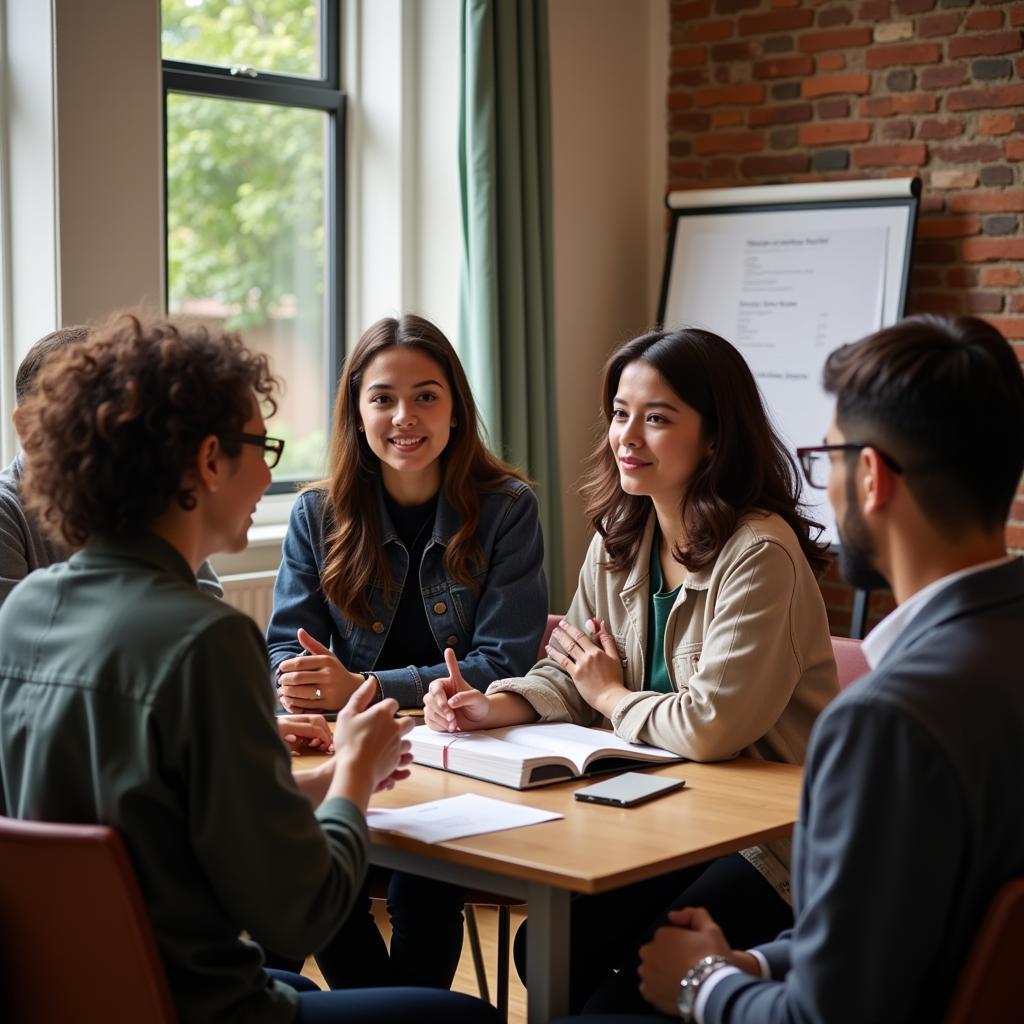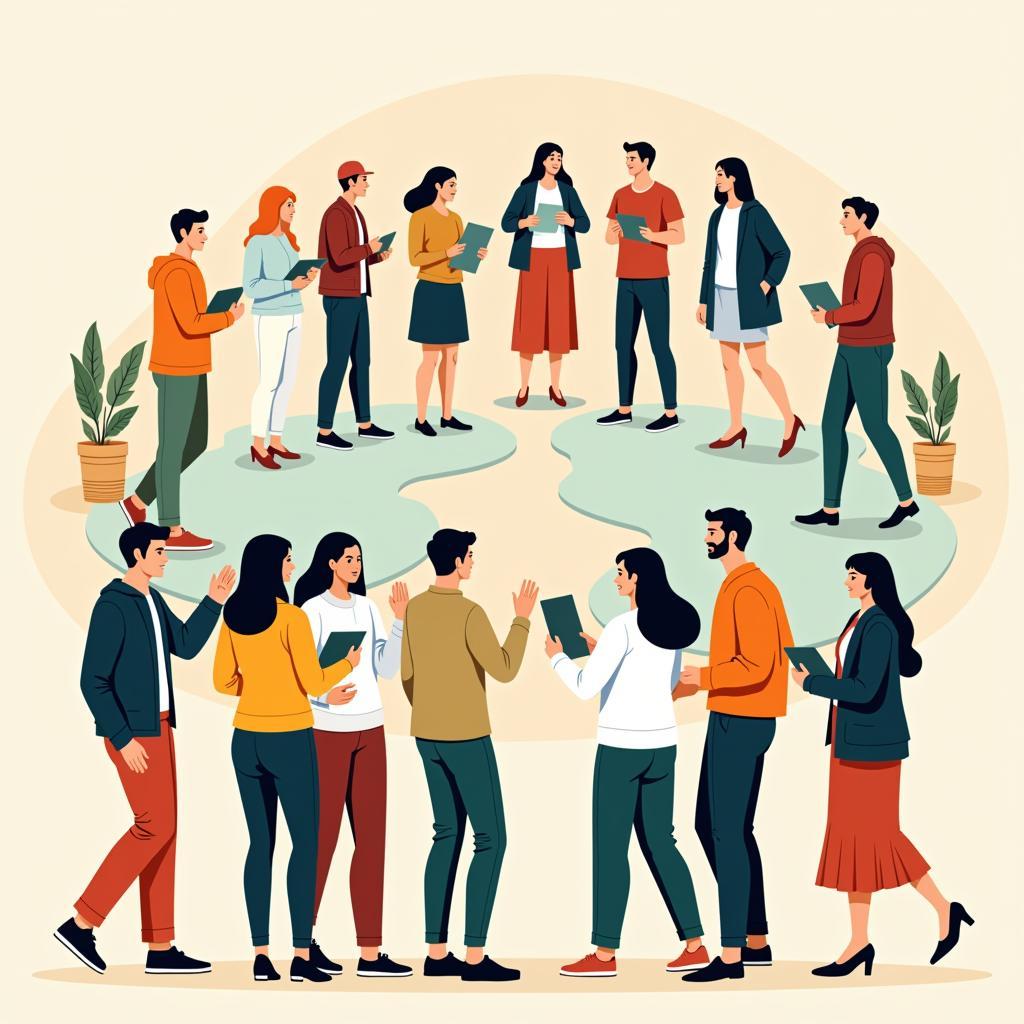Society and individuals are inextricably linked. Individuals shape society, and in turn, society influences the development and actions of its individuals. This dynamic relationship is at the heart of understanding how we can build a more peaceful world. By fostering positive change at the individual level, we can collectively contribute to a more harmonious and peaceful global society.
The influence of society on individuals is profound. From the moment we are born, we are immersed in a social environment that shapes our values, beliefs, and behaviors. Our families, communities, and the broader societal structures within which we live all play a vital role in molding who we become. This societal influence can be a powerful force for good, promoting cooperation, empathy, and a sense of shared responsibility. However, it can also perpetuate negative patterns of behavior, including prejudice, discrimination, and violence.
One crucial aspect of this relationship is the role of social institutions. Educational systems, religious organizations, and government policies all contribute to the overall societal framework that influences individual behavior. These institutions can either reinforce peaceful norms or inadvertently contribute to conflict. For example, educational systems that promote critical thinking, empathy, and intercultural understanding can empower individuals to become peacebuilders. Conversely, societies with discriminatory laws or practices can create an environment where conflict and violence thrive. Check out the Hawaii Autism Society for an example of how societal structures can support individuals with specific needs.
How Individuals Contribute to a Peaceful Society
Individuals are not merely passive recipients of societal influence; they are also active agents of change. Each person has the potential to contribute to a more peaceful world through their thoughts, words, and actions. By embracing values such as compassion, respect, and tolerance, individuals can create ripples of positive change that extend outwards to their families, communities, and beyond.
One powerful way individuals can promote peace is through active participation in their communities. Volunteering time, donating to charitable causes, and engaging in constructive dialogue on important social issues are all examples of how individuals can make a tangible difference. Even small acts of kindness and compassion can have a significant impact on fostering a more peaceful and harmonious environment.
The Power of Collective Action
While individual actions are essential, collective action is equally crucial for achieving lasting peace. When individuals come together with a shared purpose, their combined efforts can create a powerful force for positive change. Social movements, advocacy groups, and international organizations all demonstrate the transformative potential of collective action. For insights into leadership and success within a societal context, see the National Society of Leadership and Sucess.
What are some examples of man vs. society conflicts?
Often, societal norms and expectations can clash with an individual’s beliefs or desires, leading to conflict. This can manifest in various forms, such as challenging unjust laws or advocating for social change. You can explore examples of these conflicts on our page dedicated to example of man vs society.
“Peace is not merely the absence of war, it is the presence of justice,” wisely noted Dr. Anya Sharma, a prominent sociologist at the Institute for Global Peace Studies.
Fostering Dialogue and Understanding
Open communication and dialogue are essential for building bridges between different cultures and perspectives. By engaging in respectful conversations, even with those who hold differing viewpoints, we can foster greater understanding and empathy. This is particularly important in our increasingly interconnected world, where interactions between people from different backgrounds are becoming more frequent.
 People Engaging in Dialogue
People Engaging in Dialogue
“True peace requires us to move beyond tolerance and embrace genuine understanding of one another,” adds Professor David Chen, a renowned expert in conflict resolution at the University of International Relations. This highlights the transformative potential of dialogue and understanding in fostering peace. For more information on how societal structures can be inclusive, visit our page on the Elves Special Needs Society.
How can the Autism Society of Nebraska help individuals?
The Autism Society of Nebraska offers invaluable resources and support to individuals with autism and their families, demonstrating how societal organizations can contribute to the well-being of its members.
 People Connecting Across Cultures
People Connecting Across Cultures
“Empathy is the key to unlocking a more peaceful future. By putting ourselves in the shoes of others, we can begin to understand their experiences and perspectives,” concludes Dr. Maria Rodriguez, a leading psychologist specializing in cross-cultural communication.
In conclusion, society and individuals are interconnected, and building a peaceful world requires a concerted effort from both. By fostering positive change at the individual level and working together collectively, we can create a more harmonious and peaceful future for all. Let us embrace our shared humanity and work towards a world where peace prevails.
Please contact us for support: Phone: 02043854663, Email: [email protected] or visit us at: Zone 34, Bac Giang, 260000, Vietnam. We have a 24/7 customer service team.